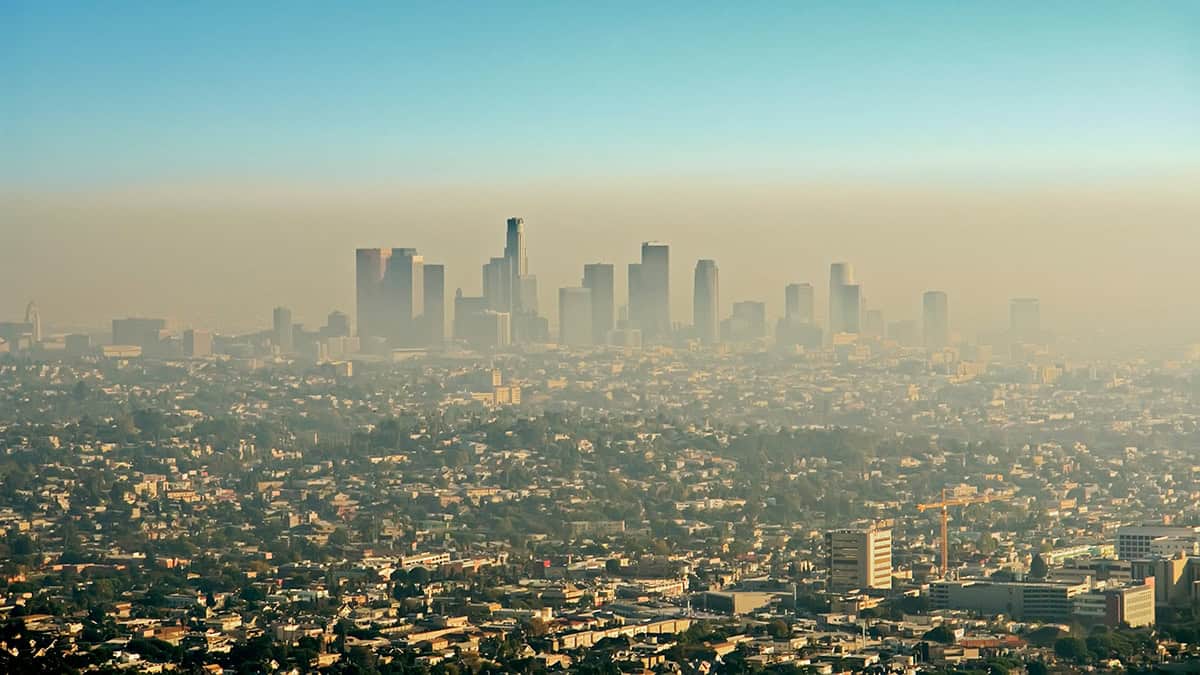Science
Prioritizing Environmental Physics: A Call to Elevate Education

As the impacts of climate change become increasingly severe, Peter Hughes advocates for the inclusion of environmental physics in every undergraduate physics curriculum. He emphasizes that this discipline is essential for equipping future scientists to address pressing environmental challenges that threaten global society.
The Urgency of Environmental Physics
The world is undergoing rapid transformations across various sectors, including the economy, geopolitics, and the environment. For many, the threat of environmental catastrophe looms large, particularly for communities facing persistent disasters such as droughts and floods. In these situations, mass migration often emerges as the only viable option.
Despite the challenges, physics has historically played a pivotal role in societal advancement. Hughes argues that environmental physics could significantly contribute by identifying and addressing pressing environmental issues. He states that physicists can make an impactful difference only if environmental physics is prioritized in academic institutions.
Defining Environmental Physics
Environmental physics explores the interactions of living organisms with their environments, framed within fundamental physics principles. This field encompasses a wide range of topics, including geophysics, meteorology, climate change, renewable energy, and remote sensing. It also addresses the dynamics of soils, vegetation, urban settings, and the survival of various species in extreme conditions.
Originating in the UK during the 1950s, environmental physics was notably shaped by pioneers Howard Penman and John Monteith at the historic Rothamsted Experimental Station. Over the past few decades, the discipline has gained traction in universities worldwide. Institutions such as University College London, University of Cambridge, and University of Oxford incorporate environmental physics into their undergraduate programs, either as standalone courses or integrated within environmental science degrees.
Currently, the UK offers 17 master’s programs related to environmental physics, covering topics like nuclear and environmental physics at Glasgow and radiation and environmental protection at Surrey. Even the London School of Economics includes elements of this field in its business, geography, and economics courses through a “physics of climate” module.
Interdisciplinary Collaboration and Future Prospects
The interdisciplinary nature of environmental physics extends beyond just physics and mathematics; it intersects with disciplines like biology, chemistry, engineering, and health sciences. Recent advancements in artificial intelligence (AI), digital technology, and machine learning are already transforming environmental physics. For instance, drones are utilized for environmental monitoring, while AI algorithms enhance weather forecasting and disaster prediction, including earthquakes and hurricanes.
Environmental physics not only provides scientific foundation but also creates opportunities for hands-on learning through experiments in laboratories and fieldwork. Such practical experiences help students grasp the importance of uncertainty, monitoring, and modeling in environmental assessments. As global environmental changes continue, the demand for skilled researchers in this field will only increase.
Hughes argues that addressing significant regional and global environmental problems is critical to sociopolitical discourse. Environmental physics empowers students to develop key interpersonal and presentation skills, enabling them to influence policymakers at various levels of government.
Ultimately, Hughes believes that every undergraduate physics program should incorporate a module on environmental physics, assigning it equal importance to courses like quantum physics or optics. He envisions an academic environment where students emerge equipped to tackle the formidable challenges posed by the future.
-

 Entertainment3 months ago
Entertainment3 months agoAnn Ming Reflects on ITV’s ‘I Fought the Law’ Drama
-

 Entertainment4 months ago
Entertainment4 months agoKate Garraway Sells £2 Million Home Amid Financial Struggles
-

 Health3 months ago
Health3 months agoKatie Price Faces New Health Concerns After Cancer Symptoms Resurface
-

 Entertainment3 months ago
Entertainment3 months agoCoronation Street’s Carl Webster Faces Trouble with New Affairs
-

 Entertainment3 months ago
Entertainment3 months agoWhere is Tinder Swindler Simon Leviev? Latest Updates Revealed
-

 Entertainment4 months ago
Entertainment4 months agoMarkiplier Addresses AI Controversy During Livestream Response
-

 Science1 month ago
Science1 month agoBrian Cox Addresses Claims of Alien Probe in 3I/ATLAS Discovery
-

 World2 weeks ago
World2 weeks agoBailey Announces Heartbreaking Split from Rebecca After Reunion
-

 Health4 months ago
Health4 months agoCarol Vorderman Reflects on Health Scare and Family Support
-

 Entertainment4 months ago
Entertainment4 months agoKim Cattrall Posts Cryptic Message After HBO’s Sequel Cancellation
-

 Entertainment3 months ago
Entertainment3 months agoOlivia Attwood Opens Up About Fallout with Former Best Friend
-

 Entertainment2 weeks ago
Entertainment2 weeks agoCoronation Street Fans React as Todd Faces Heartbreaking Choice









